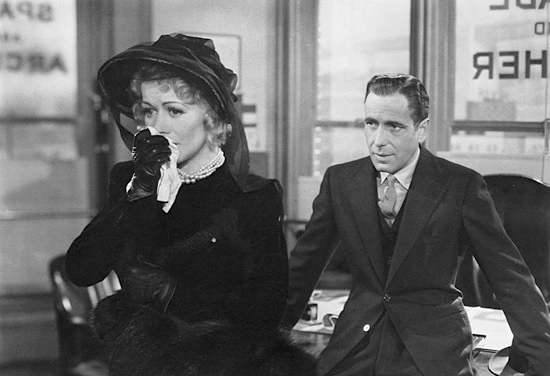John Huston John Huston (1906-1987), American motion-picture director and actor, who created some of the most critically acclaimed films of American cinema in his long and distinguished career.
Publié le 12/05/2013

Extrait du document

John Huston John Huston (1906-1987), American motion-picture director and actor, who created some of the most critically acclaimed films of American cinema in his long and distinguished career. He was born in Nevada, Missouri, son of noted stage and screen actor Walter Huston. After leaving school at the age of 14, Huston spent 20 years in a variety of professions, working as a boxer, actor, editor, artist, reporter, and screenwriter. Huston's first venture as a director, the film version of The Maltese Falcon, a detective story written in 1930 by American writer Dashiell Hammett, was nominated for best picture at the 1941 Academy Awards. Other film classics directed by Huston and starring Humphrey Bogart--who played the leading role in The Maltese Falcon--were Key Largo (1948) and The Treasure of the Sierra Madre (1949). For his performance in the latter, Huston's father, Walter, won an Academy Award for best supporting actor. Bogart himself won an Academy Award for best actor for his work under Huston's direction in The African Queen (1951). Huston also successfully transferred to the screen works by such respected American writers as Stephen Crane (The Red Badge of Courage, 1951), Herman Melville (Moby Dick, 1956), Arthur Miller (The Misfits, 1961), Tennessee Williams (The Night of the Iguana, 1964), Flannery O'Connor (Wise Blood, 1979), and by British writer Malcolm Lowry (Under the Volcano, 1984). He made three documentaries for the United States Army during World War II (1939-1945), for which he was awarded the Legion of Merit and was promoted to the rank of major. Although Huston's directorial output was uneven, his long career included such memorable films as The Asphalt Jungle (1950), Moulin Rouge (1952), Beat the Devil (1954), Reflections in a Golden Eye (1967), Fat City (1972), The Man Who Would Be King (1975), and Under the Volcano (1984). Also notable are his final two pictures, Prizzi's Honor (1985), for which his daughter, Anjelica Huston, won an Academy Award for best supporting actress, and The Dead (1987), based on a short story by Irish writer James Joyce and adapted for the screen by Huston's son Tony, and which also starred Anjelica. Huston contributed striking characterizations as an actor in such films as The Bible (1966), The Cardinal (1963), Chinatown (1974), and Winter Kills (1979). His autobiography, An Open Book, was published in 1980. Microsoft ® Encarta ® 2009. © 1993-2008 Microsoft Corporation. All rights reserved.
Liens utiles
- Charlie Chaplin Charlie Chaplin (1889-1977), English motion-picture actor, director, producer, and composer, one of the most creative artists in film history, who first achieved worldwide fame through his performances in silent films.
- Frank Sinatra Frank Sinatra (1915-1998), Italian American singer and motion-picture actor, one of the most famous American entertainers of his generation.
- Tom Hanks Tom Hanks, born in 1956, American motion-picture actor, a two-time Academy Award winner who is acclaimed for both his comic and dramatic performances.
- Jodie Foster Jodie Foster, born in 1962, American motion-picture actor, director, and Academy Award winner, who began her career as a child actor.
- Billy Wilder Billy Wilder (1906-2002), American motion-picture director, writer, and producer, whose best films--usually comedies--employ his distinctive dialogue to elucidate a darkly satirical view of human nature.







